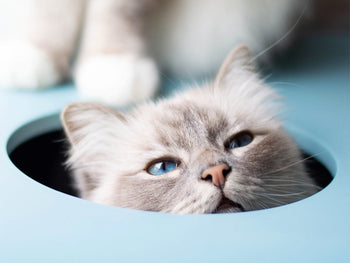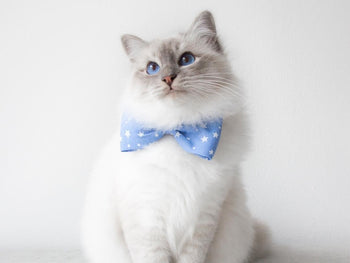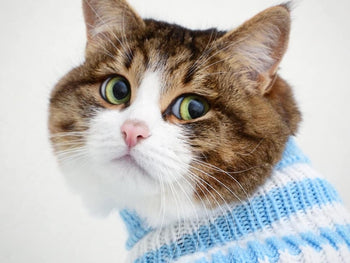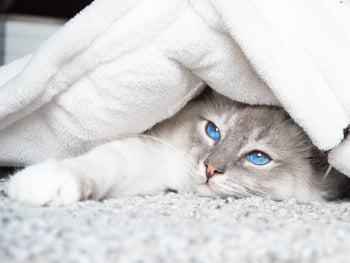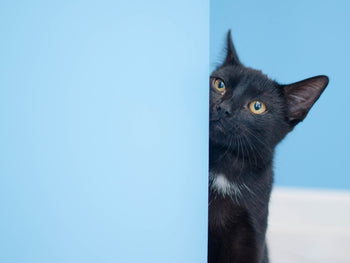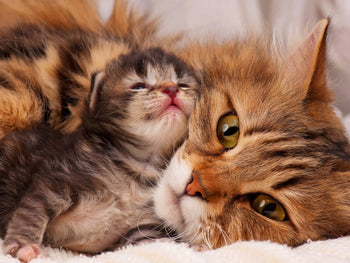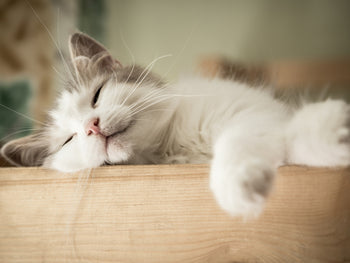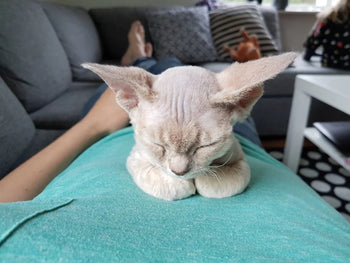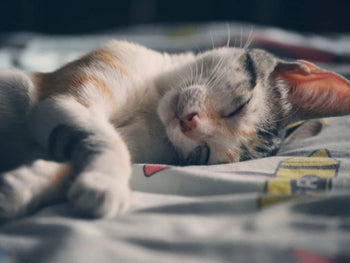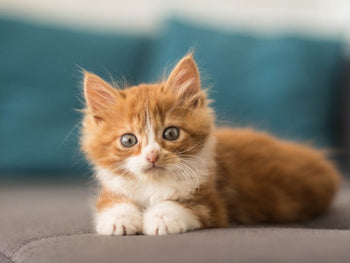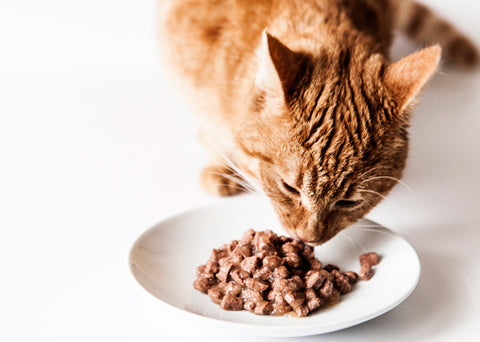
Obviously, cats only live a healthy life if they take in enough food every day. That is why if you notice your furball skipping meals, something might have gone wrong. Still, the appetite of the felines tends to be influenced by a variety of psychological as well as medical issues... In addition, like their cousins in the outdoors, indoor cats could live without food for a certain amount of time. Knowing that, quite a few novice cat parents often wonder to themselves: "how long can a cat go without eating?".
Want to know what experts have to say about that? If that happens to be the case then you have come to the right place. Down below, you would find everything that pet owners must keep in mind about cats and their refusal to eat.
A Couple Of Time Estimates
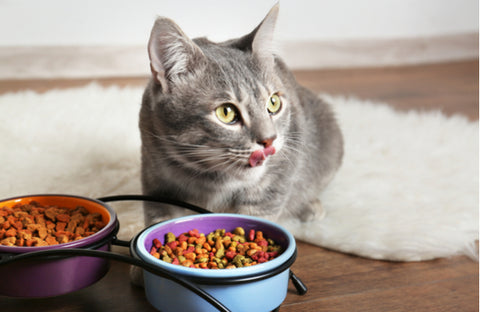
Generally speaking, different cats have different constitutions but the average felines should be able to survive without food for 1 – 2 weeks. Other factors such as surrounding, age, sickness, genetics, emotion and alike also have considerable impacts.
Once cats fail to secure enough nutrition, they shall burn their body fat for energy. The liver of the pets plays the main role in that process which causes great strains if the situation persists. In severe cases, the liver of the felines suffer damages that lead to fatal consequences. Most of the time, fragile kittens and senior cats don't last as long as adult cats without food. In weak felines, critical organ failures may even take place after just a few days. Hence, it's essential that you think it through if your fluffy friend decline to eat out of the blue.
Why Cats Skip Meals: Suspects
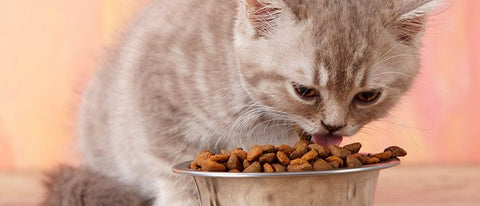
While talking about "how long can a cat go without eating?", it's a good idea to remember what causes the pets to lose appetite. Knowing the reason why your furball skips meal would allow cat parents to react properly.
-
Sickness
Overall, cats instinctively hide signs of illness as they know that in the wild, predators tend to prioritize sick prey. That means if your cat is having health issues at the moment, it should do its best to act naturally. Nonetheless, the daily behaviors of felines while suffering from sickness change significantly compared to usual. Hence, if your fluffy friend skips meals all of a sudden, it's strongly recommended that you assume it's sick. A trip to the vet is always a safe bet in such a case.
-
Stress
Considering the jumpy nature of cats, it's safe to say that they could be stressed by virtually everything; sounds, images, ... Similar to humans, stressed cats skip meals from time to time until they relax. While a lot of pets eventually learn to adapt to changes in the environment, several cats need outside assistance. As a result, it's essential that you always keep watch over your furball, especially if it's recently adopted. Needless to say, most of the felines don't thrive if they have to deal with stress day after day.
-
Taste
Cats have classes so if your kitty finds the food in its bowl unappealing, it's going to walk away. Some cats get bored after being fed the same type of food for a long time but others also might refuse to eat unfamiliar food. Among the causes that make the felines stop eating, taste is the easiest to solve. All you have to do is to feed your cat a variety of food then proceed to gauge its reaction. That alone is more than enough to determine what food the pet likes the most.
How Long Should You Wait Before Visiting Veterinarian: It Depends
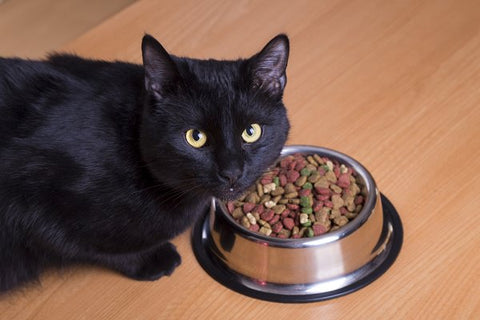
How long can a cat go without eating? A week or two. Then is it necessary to get the felines straight to the vets once they skip meals? Well, the answer varies from case to case. As loss of appetite usually indicates troubles, it's indeed a good idea for you to immediately schedule a vet checkup for your fluffy friend. That being said, cats could stop eating because of minor issues that don't warrant a trip to the vets.
Overall, the felines eat less in the aftermath of vomiting episodes caused by hairball, ingestion of plant and so on. In addition to that, cats with chronic upper respiratory issues would likely lose appetite on occasions due to nasal congestion. Therefore, pet owners that happen to be familiar with the constitution of their cats should wait for a bit before bringing them to the clinics. Most of the time, keep your furball under surveillance for 24 - 36 hours to see if it resumes eating.
Check us out for further detailed cat's health guide!
How To Get Cats To Eat More
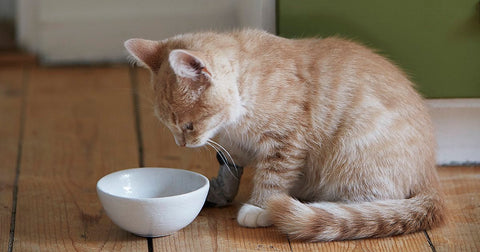
At this point, you could answer the question of "how long can a cat go without eating?" on your own. Now, all you have to worry about now is to see if you could get the felines to eat more
-
Add Flavors To The Food
Your fluffy friend refuses to eat out of the blue? Then it's widely advised that you add a few new flavors to the food. Chicken broth, seafood varieties, grated parmesan cheese and so on would work in most cases. The changes in tastes should be able to capture the interests of the felines without fail. Obviously, while using appetite enhancers, you must take the state of your cat into account.
-
Warm The Food A Bit
Certain cats like their food to be slightly warm so if your furball suddenly loses appetite, consider warming the food in the oven before serving. Needless to say, the cat's tongue is unable to handle hot stuff which is why you have to keep the temperature at a suitable level. Warming the food is even more important in case you keep the food of your cat in the fridge.
-
Hand Feed The Pet
Cats that stop eating abruptly may feel more inclined to eat some food if their owner patiently hands feed them. Feed your fluffy friend small pieces of food and whatever you do, don't force the food through its mouth.
Looking for more interesting Cat Tips & Facts? Visit Cattybox !